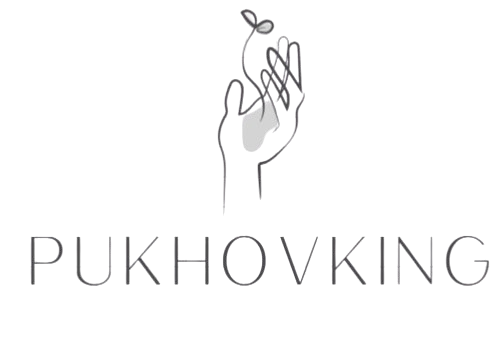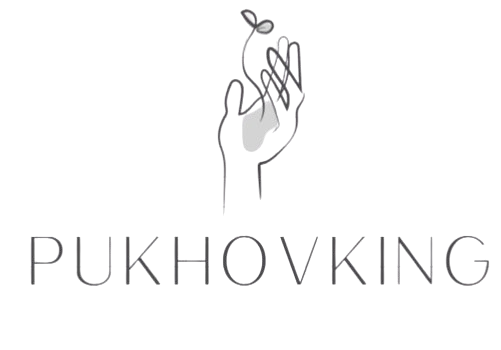Hemp, a plant that has been cultivated for thousands of years, is gaining recognition in the modern world due to its remarkable versatility and sustainability. Known scientifically as Cannabis sativa, hemp is a non-psychoactive variety of cannabis that has been used for a wide range of purposes, from textiles to food, and even construction materials. Its ability to thrive in a variety of climates with minimal environmental impact makes it a powerful resource for eco-conscious consumers. Whether used for its fibers, seeds, or oils, hemp offers a wealth of benefits that make it a valuable addition to any home or lifestyle.
A Natural Fiber for Eco-Friendly Products
One of the primary uses of hemp is in the production of natural fibers. Hemp fibers are extremely strong, durable, and resistant to wear, making them ideal for a variety of applications, including textiles, ropes, and even eco-friendly construction materials. The use of hemp fabric in clothing and accessories is becoming increasingly popular due to its sustainability, breathability, and comfort. Unlike traditional cotton, hemp requires far fewer pesticides and much less water to grow, making it a more environmentally friendly option.
Hemp fibers are also biodegradable, meaning that products made from hemp can decompose naturally and return to the earth without contributing to pollution. Whether it’s a hemp T-shirt, a hemp rope, or a sturdy hemp rug, these products are perfect for individuals who want to make more sustainable choices in their everyday lives.
Nutritional Benefits of Hemp Seeds
Another valuable product derived from hemp is its seeds. Hemp seeds are considered a superfood due to their impressive nutritional profile. Packed with protein, healthy fats, and essential nutrients, hemp seeds are a fantastic addition to any diet. They contain all nine essential amino acids, making them a complete protein source for vegetarians and vegans. Additionally, hemp seeds are rich in omega-3 and omega-6 fatty acids, which are beneficial for heart health and overall well-being.
These tiny seeds are also a great source of fiber, vitamins, and minerals, including magnesium, potassium, and iron. Whether sprinkled on top of salads, blended into smoothies, or incorporated into baked goods, hemp seeds provide a healthy and nutritious boost to your meals. They are also hypoallergenic, making them an ideal option for people with nut or gluten allergies.
Hemp Oil - A Multitasking Wonder
Hemp oil is another valuable product extracted from the seeds of the hemp plant. Rich in essential fatty acids, antioxidants, and vitamins, hemp oil is widely used in both beauty and wellness products. Hemp oil has anti-inflammatory properties and is known for its ability to soothe and moisturize the skin. It’s often found in creams, lotions, and serums designed to improve skin health, reduce redness, and prevent signs of aging.
In addition to its skincare benefits, hemp oil is also a popular ingredient in supplements due to its potential to support brain and heart health. It has been studied for its ability to promote a healthy balance of essential fatty acids in the body, which is essential for maintaining optimal cognitive function and cardiovascular health.
Hemp as an Eco-Friendly Building Material
The hemp plant is not only useful for creating everyday products but also for sustainable building materials. Hempcrete, a concrete alternative made from hemp fibers, lime, and water, is gaining popularity as an eco-friendly construction material. This natural material is lightweight, insulating, and incredibly durable. Hempcrete is a highly effective way to reduce the carbon footprint of construction projects, as it stores carbon rather than emitting it.
In addition to hempcrete, hemp fibers are also used to create insulation, flooring, and even biodegradable plastics. As the demand for environmentally conscious building materials grows, hemp is proving to be a key resource in creating sustainable, energy-efficient homes and buildings.
The Environmental Benefits of Hemp Farming
Hemp is one of the most sustainable crops to grow. It requires little water, grows quickly, and can thrive in a variety of climates and soil types. Hemp farming has a significantly lower environmental impact compared to other crops like cotton, as it requires fewer pesticides and synthetic fertilizers. Additionally, hemp has a deep root system that helps prevent soil erosion and improves soil health by promoting biodiversity.
Hemp is also known for its ability to absorb carbon dioxide from the atmosphere. It’s considered a carbon-negative crop, meaning that it captures more carbon during its growth than is emitted during its cultivation, processing, and use. As such, hemp farming can play a vital role in combating climate change by helping to reduce greenhouse gas emissions and sequester carbon.
Hemp in the Health and Wellness Industry
The health benefits of hemp extend beyond its nutritional value and skincare uses. In recent years, hemp-derived products like CBD oil have become increasingly popular for their potential to support mental and physical health. CBD (cannabidiol) is a non-psychoactive compound found in hemp that has been studied for its ability to reduce anxiety, relieve pain, and improve sleep quality.
Hemp-based CBD products are widely available in the form of tinctures, capsules, and topical creams. Many people use CBD to manage stress, reduce inflammation, and promote relaxation, making it a popular choice in the natural health and wellness market. Since hemp-derived CBD is non-psychoactive, it is a safe and legal option for those looking to improve their health without the effects of THC (the psychoactive compound in cannabis).
Hemp as a Sustainable Alternative in Various Industries
Hemp’s potential extends far beyond the examples mentioned above. The plant is increasingly being explored as a sustainable alternative in various industries, including paper production, biofuels, and even cosmetics. Traditional paper production is resource-intensive, requiring large amounts of water and trees. Hemp, on the other hand, can be used to create paper products with a smaller environmental footprint.
Hemp-based biofuels are also an exciting area of research, as they offer a renewable and cleaner alternative to fossil fuels. Hemp’s ability to grow quickly and in a variety of conditions makes it an ideal candidate for biofuel production, helping to reduce reliance on non-renewable resources and mitigate the effects of climate change.
Hemp is a truly versatile and sustainable plant that offers a wide range of benefits for both individuals and the environment. From its strong and eco-friendly fibers to its nutrient-packed seeds and oils, hemp has a place in nearly every aspect of modern life. As people become more conscious of the environmental impact of their choices, hemp provides an eco-friendly alternative to traditional products in various industries, from fashion to construction.
By incorporating hemp into our daily lives, we can reduce our carbon footprint, promote better health, and support a more sustainable future. Whether you're looking for sustainable clothing, a natural skincare solution, or a way to reduce your environmental impact, hemp is a plant that truly delivers.
The hemp plant is not just a resource—it's a key player in creating a more sustainable, healthier world. Whether used for building materials, health products, or eco-friendly goods, hemp's versatility continues to make a significant impact across industries.







